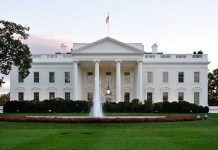
Romania faces political upheaval as President Klaus Iohannis resigns amidst an electoral crisis and nationwide protests.
Key Takeaways
- Romanian President Klaus Iohannis resigned to avert political instability and an impending impeachment vote.
- Iohannis’ resignation follows the annulment of presidential election results due to alleged Russian interference.
- New presidential elections are tentatively scheduled for May, with no formal decision yet made.
- Iohannis’ resignation will make the Senate chief interim president.
- Clashes erupted between police and supporters of far-right candidate Calin Georgescu.
Romanian President Resigns Amidst Political Crisis
Romanian President Klaus Iohannis announced his resignation on February 10 to prevent a brewing political crisis triggered by an electoral court decision. He steps down on February 12, after serving since 2014. The resignation aims to defuse tensions amid a constitutional court’s annulment of the recent presidential election results. The annulled results favored far-right candidate Calin Georgescu, whose campaign faced allegations of Russian meddling. Iohannis’ decision follows intense protests and mounting pressure from opposition parties.
Political analysts warn that Iohannis’ resignation may trigger further volatility in Romania’s political landscape. Many view his departure as an attempt to stabilize the country amidst rising tensions and divisions. The parliament was poised to vote on Iohannis’ impeachment, initiated by ultranationalist factions and Save Romania Union MPs.
Romanian President Klaus Iohannis resigns amid criticism over election annulment and ban on Gheorgheescu from running 🤯👀.
The election annulment was due to confirmed foreign interference, sparking controversy and protests. Iohannis' resignation comes as a surprise, but it's… pic.twitter.com/COIRshSRBU
— The Viral Videos (@The_viralvideo_) February 10, 2025
Future Uncertainties and Election Rescheduling
Following Iohannis’ resignation, Romania faces questions about its political path forward. Plans for new presidential elections suggest May 4 as the potential date for the first round, with a second round expected on May 18, though these remain provisional. The interim leadership will fall to the Senate chief until a new president is elected. Opposition parties, including the far-right AUR and nationalist S.O.S party, have been vocal in their demand for Iohannis’ removal, arguing that it was overdue.
“This is a useless endeavor because, in any case, I will leave office in a few months after the election of the new president. It is an unfounded move because I have never – I repeat, never – violated the constitution. And it is a harmful endeavor because … everyone loses, and no one gains.” – Klaus Iohannis
Authorities warn of the potential impact on Romania’s foreign relations amidst its EU and NATO membership. Clashes occurred between police and Georgescu supporters, demonstrating the heightened divisions within Romania. Iohannis’ critics argue for an institutional realignment to prevent future political crises.
Romanian President Klaus Iohannis resigns amid criticism over election annulment and ban on Gheorgheescu from running 🤯👀.
The election annulment was due to confirmed foreign interference, sparking controversy and protests. Iohannis' resignation comes as a surprise, but it's… pic.twitter.com/COIRshSRBU
— The Viral Videos (@The_viralvideo_) February 10, 2025
Public Response and Political Ramifications
Iohannis’ departure has intensified discussions about Romania’s international image and domestic stability. His resignation comes amid significant allegations against Georgescu and questions about foreign interference in the electoral process. Political figures like Elena Lasconi of the USR criticize the resignation’s timing, emphasizing the need for realignment within the country’s political institutions.
“The usurper is finally gone, if he had not resigned, he would have been impeached by (Romania’s) Parliament and thrown out.” – George Simion
Many Romanians now wait to see how the country will navigate this political transition. Iohannis’ legacy will be shaped by his efforts to prevent distrust and further complications in Romania’s governance during his tenure.
Sources
1. Romanian President Klaus Iohannis resigns to avoid political crisis
2. Romanian President Resigns Amid Protests Over Annulled Election














